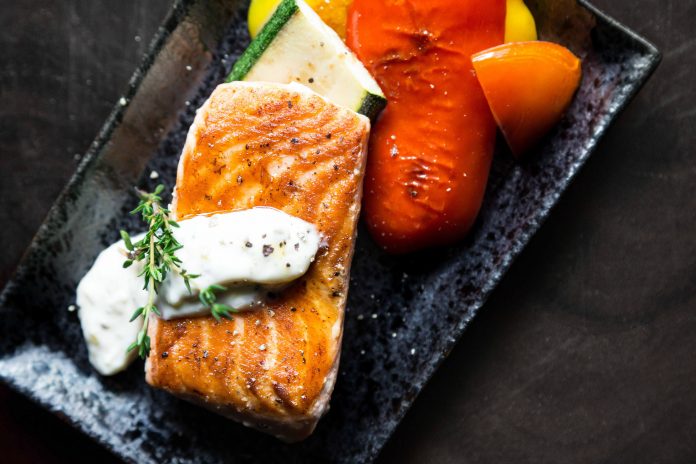By: Carlos M Viana, Clinical Nutritionist
Something that is necessary is considered ‘essential’. Breathing, the ability to drink water, eat, digest and absorb your food is metabolically essential. Metabolic or metabolism means, the breakdown and changing of food into energy to fuel the body.
When a clinical nutritionist discusses metabolism of food, they include three food groups, protein, fat and carbohydrates. Protein is found in animal muscle and organ, such as meat, fish, poultry, eggs and dairy. Proteins exist throughout your body in everything from muscles and organs to bones, skin, and hair. The body does not store protein like it does other nutrients. Complete sources of protein which contain all the amino acids your body needs to function effectively are called essential. Essential amino acids cannot be made by the body, they must come from your food.
Plant-based foods rich in protein include lentils, nuts, beans, peas, certain fruit, such as avocados, grains like; hemp, quinoa, millet and amaranth. Many vegetables also contain high amounts of protein. Whether you are getting it from animal or plant source, it is essential to good health to eat protein. The worse medical advice has been to eat “fat free” and take cholesterol lowering medication. Your brain is 60% fat, so why do you want to reduce the amount of fat you eat. Cholesterol, a fat-like substance is naturally made by the body. Most of the cholesterol in our bloodstream 75%, is produced by the liver, and only the remaining 25% comes from the foods we eat. Many animal and vegetable fats and oils are called Fatty acids.
Essential fatty acids, necessary for the body are polyunsaturated (healthy). That are synthesized by plants, not your body and therefore are dietary requirements. Foods and oils with high amounts of polyunsaturated fats include olive oil, walnuts, sunflower seeds, flax seeds or flax oil, oily fish, such as: salmon, mackerel, herring, albacore tuna, and trout. Not only are they essential, for you, polyunsaturated and monounsaturated fats are healthy. Older people with high cholesterol levels will live longer. The fat from food is a major source of energy. It helps you absorb some of your vitamins and minerals. Fat is needed to build cell membranes or walls as well as the protective cover surrounding nerves. Fat is essential for blood clotting, muscle movement, reducing inflammation and making hormones like estrogen, testosterone and adrenalin. Cholesterol is essential for your body to produce vitamin D, necessary for absorption of calcium from your food. Dark green, leafy vegetables are the best available sources of calcium.
The third food group is carbohydrates. The two main forms of carbohydrates are sugars (such as fructose, glucose, and lactose) and starches, which are found in foods such as starchy vegetables (potatoes, corn and beans) and grains like, rice, breads, and cereals. There are NO essential carbohydrates. You will hear dieticians discussing “good carbohydrates and bad carbohydrates” but you do not need to eat any to be healthy. Generally, “Bad” carbohydrates are white. White bread, sugar, potatoes, rice and of course processed foods, snacks and sugary drinks. “Good” carbohydrates include whole grains, like pure oats, quinoa, brown rice, millet and amaranth. But they are not essential, you can live without them. There is a small amount of carbohydrates in vegetables, fruit, beans and milk products, which also include healthier proteins and fats. Your body breaks down most carbohydrates into the sugar, glucose which is absorbed into the bloodstream. Although your brain is mostly fat, it runs on glucose, so your brain needs sugar or glucose. Some brain disorders have shown improvement with sugar made by the breakdown of protein and/or fat, not carbohydrates. Your body breaks down fats into glycerol and fatty acids. These fatty acids can then be broken down directly for energy or can be used to make glucose through a multi-step process. In that process, your liver uses essential amino acids to create this glucose.
Get The Point! Eating the freshest unprocessed food possible including your essential nutrients, amino acids and fatty acids, vitamins and minerals is vital for good health. No or low-carb diets are not new, they have been around a long time and shown to work under many “diets” names. Nutritional science shows a low-carb diet reduces appetite, supports abdominal fat loss, lowers triglycerides (“Bad” fats) increases good fats, reduces blood sugar and other health benefits. A clinical nutritionist can evaluate your individual needs and help you set up a personal plan addressing your best health.
CARLOS VIANA, Ph. D. is an Oriental Medical Doctor (O.M.D.) having studied in China; a US Board Cert. Clinical Nutritionist (C.C.N.), an Addiction Professional (C.Ad.), Chairperson of the Latin American Committee of the International Academy of Oral Medicine and Toxicology (IAOMT), a Rejuvenating Cell Therapist specializing in Age Management, has a weekly radio program, writes and lectures extensively. For information: VIANA HEALING CENTER, Kibaima 7, St Cruz TEL: 585-1270 Web Site: www.vianaheal.com or www.facebook.com/vianahealingcenter.




















